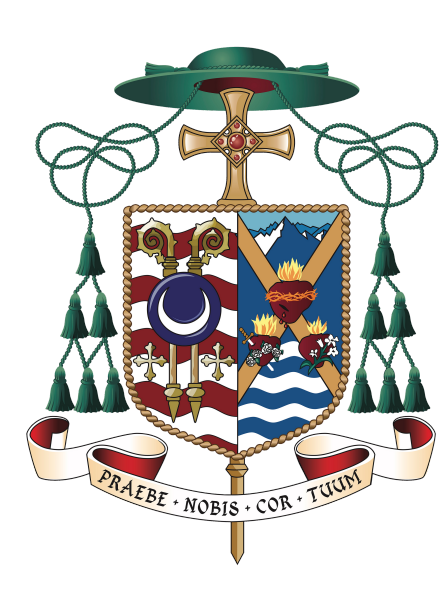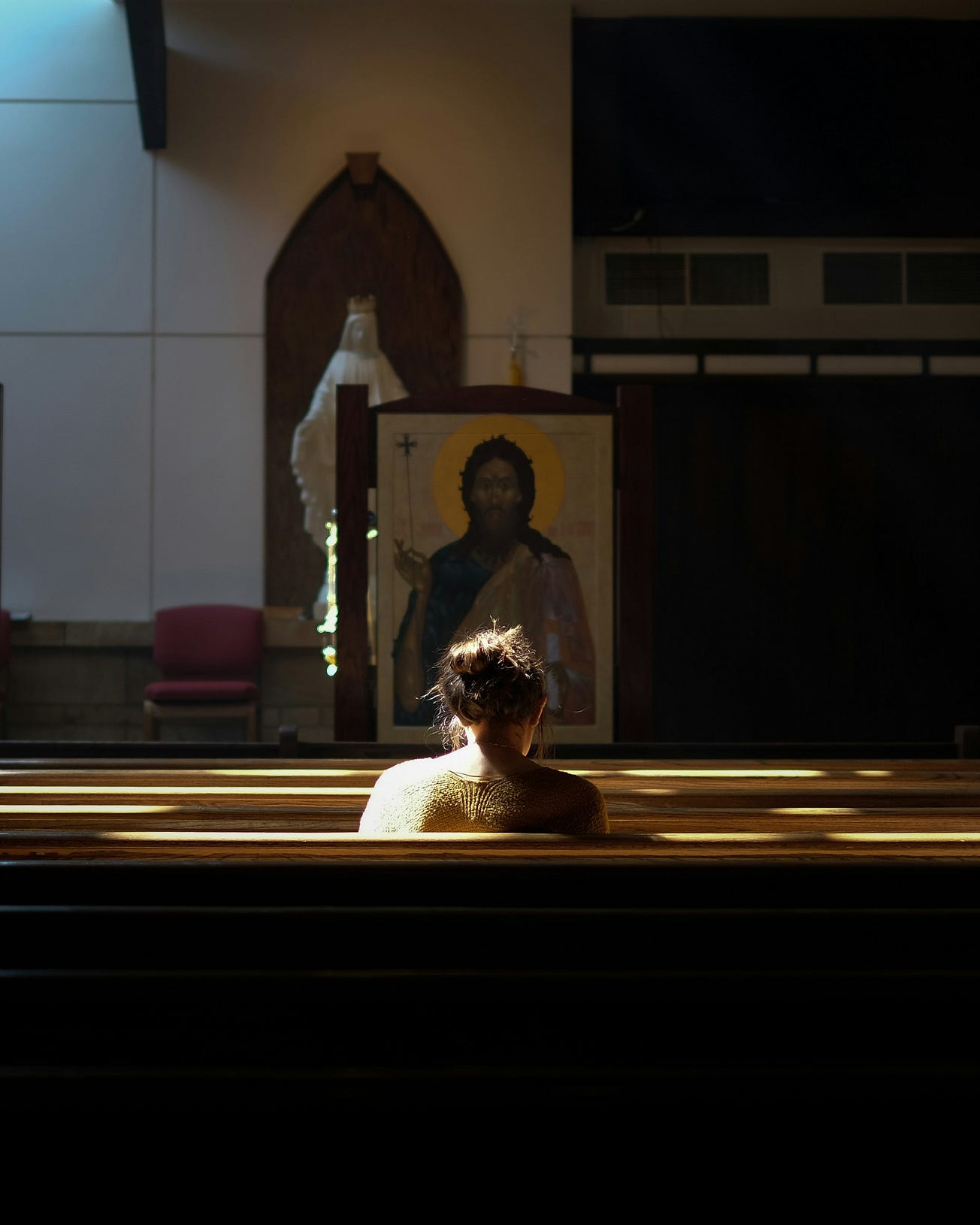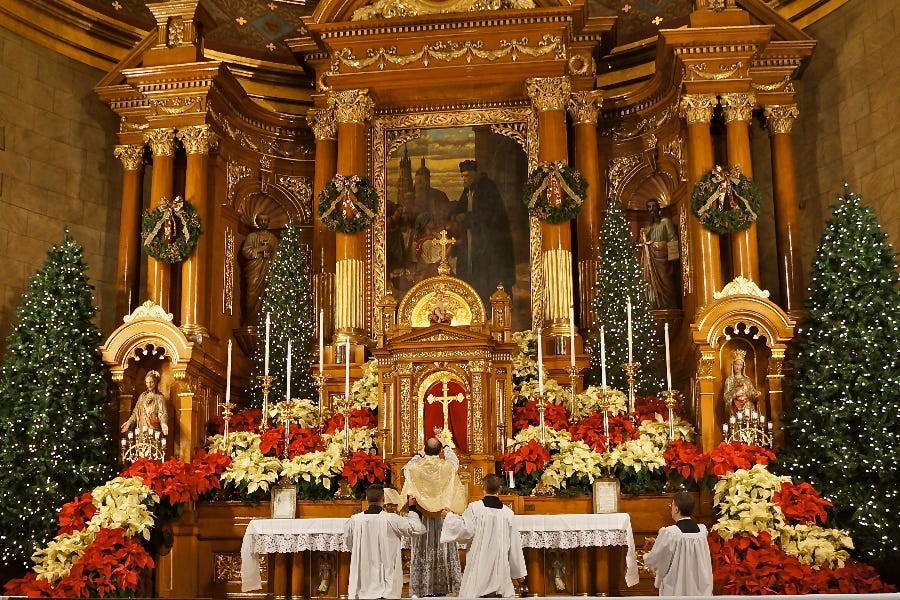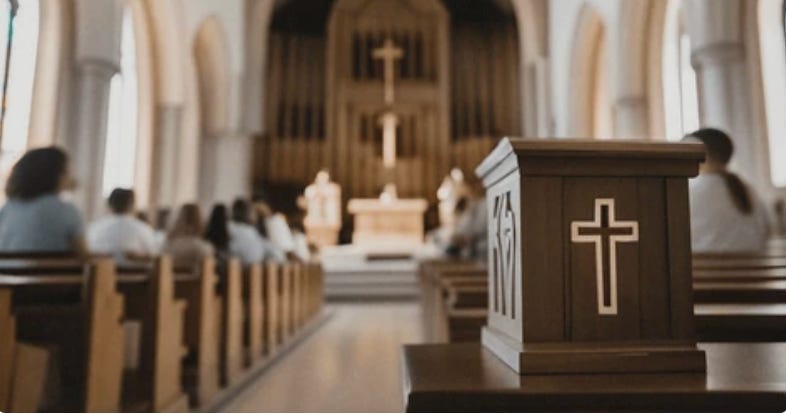As Bishop Andrew Cozzens takes the reins in the Diocese of Crookston on Monday, he will focus on healing, renewal, and holiness, in a diocese which saw its last bishop resign after a Vatican investigation into serious administrative misconduct.
Cozzens, installed Dec. 6 as the eighth Bishop of Crookston, will also focus on forging unity and fraternity among the 32 priests of the Northern Minnesota diocese. And for that, he’ll turn to his decades of experience in the Companions of Christ, a unique movement of diocesan priests aiming for accountability and support in ministry, and in life.
“It just means that I believe in the value of priestly fraternity and the ability of priests to be able to support each other, and the importance of that, and I believe in what can happen when priests join together to support each other in the pursuit of holiness,” Cozzens said Sunday of his membership in the association.
“The Companions of Christ is simply one intentional way that a group of priests might join together, follow a rule of life that would help us to support each other, be stronger for each other, and then to live holier lives, so we can serve our people better,” the bishop told The Pillar.
Cozzens was among the founding members of the Companions of Christ, formed in the Archdiocese of St. Paul and Minneapolis in 1992. And when he became an auxiliary bishop in 2013, Cozzens became the first member of the group to be consecrated to the episcopate.
Archbishop Bernard Hebda, who has led the St. Paul and Minneapolis archdiocese since 2015, believes that Cozzens’ affiliation with the group has helped make him a good bishop.
The group is “very intentional about doing the things that all diocesan priests are supposed to do. They’re intentional about holding each other accountable to be faithful to those obligations that we have as priests,” Hebda told The Pillar.
“They’re just excellent priests, they serve well in our parishes, I love their sense of joy and ministry… They’re serious about study, they’re serious about ministry, they’re serious about the spiritual life,” the archbishop added.
There are about 30 priest members of the Companions of Christ in the Archdiocese of St. Paul and Minneapolis, and another 15 seminarians discerning membership in the group. The Companions are diocesan priests, not members of a religious order, but they make commitments to meet regularly, to pray a daily holy hour, to study together, and, whenever possible, to live in small communities of at least three, called “households” together.
About two-thirds of the Minnesota Companions live in six or seven households together. Fr. Peter Williams, the group’s moderator, said that’s because Hebda has made efforts to assign the Companions to parishes which allow the men to share a rectory, and allow others to live close by.
“‘A cord of three strands is not easily broken,’” Williams told The Pillar, quoting Ecclesiastes.
“I meet with [Hebda] twice a year, and it’s one of the first things I always thank him for, because he’s been very good about it. He’s been open to being a little strategic about where guys are assigned, for that purpose,” Williams said.
Williams emphasized that the members of the Companions try to live together to combat the challenges of loneliness and isolation that can become a burden in priestly life.
“It can be hard weathering the storm on your own, and you can be doing good things as a priest every day, but if you’re not actually sharing it, you feel like you’re a Lone Ranger,” the priest said.
Williams acknowledged that some priests who are not Companions might think the group’s members are seeking special favors by asking to live together.
But “we are not Companions because we’re somehow better or, like, super-athlete priests or something,” Williams said. “It’s actually from a place of poverty acknowledged, and a sense that we actually need brothers to live this vocation in a healthy and holy way.”
Hebda, too, acknowledged that some priests have had concerns the Companions are seeking to be somehow apart for their presbyteral brothers.
“There would be some priests in the diocese who look at things that way. But I think for the most the Companions are very well accepted among the priests. And in general, you know, most diocesan priests are really concerned about making sure the work gets done, and that we have more priests, and that they’re happy priests and productive.”
“I think a lot of our priests have said ‘that’s not for me,’ but I think they’re more than tolerant of the Companions, and the Companions’ lifestyle, and what it means to have that kind of a subgroup within the diocese. I don’t get the sense that anybody is ever not included — anybody that wanted to become a Companion, I think there would always be that possibility. But if that’s not part of their calling, I think that’s perfectly respected as well. And we have excellent priests who are Companions, and excellent priests who are not Companions, and a few excellent priests who have left the Companions.”
Hebda said that when bishops call him to ask about initiating a Companions movement in their own diocese, “I would share that same observation.”
There are two dioceses which have seen priests launch Companions’ outgrowths — one in the Diocese of Joliet, and one in the Archdiocese of Denver.
Hebda said “it’s not surprising that there are priests all over the country who are interested in the Companions’ model” of diocesan priesthood, Hebda said.
For their part, the Companions hope to foster brotherhood among all priests in their diocese, Williams told The Pillar, not just among each other. They invite priests to Lord’s Day meals at their homes, and try to build friendships outside their association.
Williams told The Pillar he also has a ministry of spiritual formation for priests.
“There’s a real sense of serving seminarians and brother priests. I walk with about 20 priests a month in spiritual direction, and I don’t just see Companion priests in spiritual direction. I just think it’s known to us that we need to serve our brothers, that’s just the nature of [our identity].”
Hebda told The Pillar he thinks that Cozzens has already approached his new assignment in Crookston in ways consistent with the Companions’ charism.
“If you watched his opening press conference in Crookston, he immediately promised that he would be praying every day before the Eucharist, which is certainly a commitment that the Companions make. And he really set that up as a goal for all his priests [in Crookston].”
“So I think the way that he lived his life as a companion will be how he models priesthood for the priests of Crookston. I imagine that would be reflected there, over time,” Hebda said.

“If you look at his coat of arms, you’ll notice that it’s a bit unusual, in that there is a braided cord that outlines the shield. And it’s that concept of the Companions about those three threads, and that idea that they’re stronger because of fraternity,” Hebda said.
“I have no doubt that will be a theme that will be really important to the bishop’s leadership in Crookston, especially as he deals with a reality that the priests are quite spread out. And so it’s going to be a challenge to find out, how will he manage to keep the priests in fraternity, even when they’re living further apart, and there are not so many options for common living.”
For his part, Cozzens told The Pillar he’ll aim to build the brotherhood he has experienced.
“You can imagine that in Crookston I will be looking for ways to encourage the priests to support each other, even if that means finding ways creatively for priests to live together, to help each other,” Cozzens said Sunday.
“I really believe that one of the great struggles that everyone in the world today struggles with is isolation and loneliness, and that’s certainly true for priests, many of whom work and live in distant places from each other.”
“So finding ways to support each other is certainly part of becoming that healthy holy priesthood that the Lord wants.”
Ed. note: This report initially said that the Companions of Christ are present in the Archdiocese of Newark, which is incorrect, rather than Denver, which is correct. The story has been corrected.




